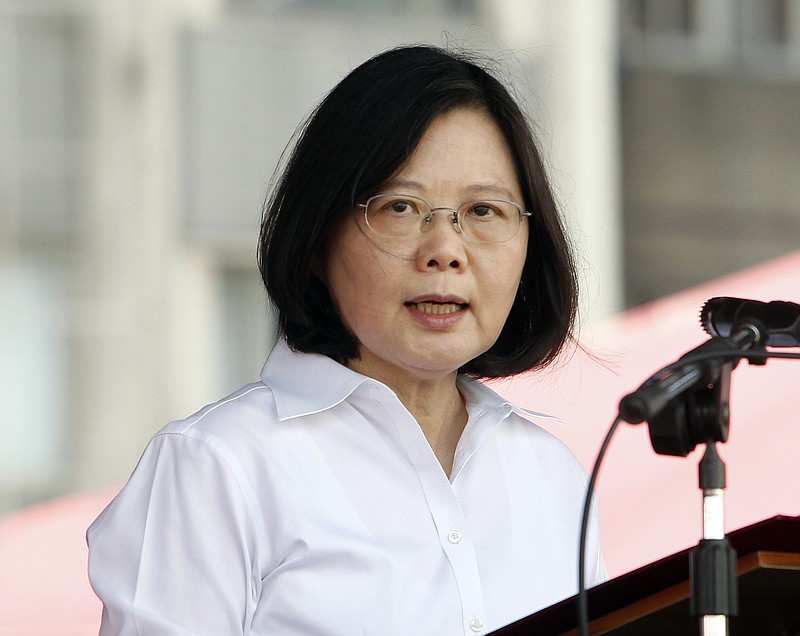TAIPEI, Taiwan (AP) - Taiwan's independence-leaning government will defend the self-governing island's freedoms and democratic system amid heightened tensions with rival China, President Tsai Ing-wen said Tuesday.
In an annual National Day address, Tsai also repeated her positions that Taiwan would continue to extend "goodwill" to China, and would neither buckle under Beijing's pressure nor go down an adversarial path.
China cut off contact with Tsai's government shortly after her inauguration last year and has refused to renew contact until she endorses Beijing's view that Taiwan is a part of Chinese territory. Beijing threatens to use force to seize control of the island and has steadily increased diplomatic and economic pressure on Taipei over the last year and a half.
"We remain committed to maintaining peace and stability both in the Taiwan Strait and across the region," Tsai said, according to an official English translation released by her office.
"Meanwhile, we will continue to safeguard Taiwan's freedom, democracy and way of life, as well as ensure the Taiwanese people's right to decide our own future," she told a crowd of citizens and foreign dignitaries gathered outside the Presidential Office Building in central Taipei.
"And the right of the people of Taiwan to choose their own future will not be affected," she said.
Oct. 10 marks the 1911 founding of the Republic of China, which once ruled on the mainland but was forced to retreat to Taiwan in 1949 after Mao Zedong's Communists swept to power amid civil war against Chiang Kai-shek's Nationalists.
Under Tsai's Nationalist predecessor, Ma Ying-jeou, the sides signed a series of agreements promoting trade and tourism, while sidestepping tricky political issues. China insists that was only possible because Ma endorsed Beijing's "one-China principle," which it says underpins all dealings with the Taiwanese government bodies.
Tsai has called for a continuation of contacts and talks between the two sides, while setting aside their political differences.
"As I have stated on many occasions, our goodwill will not change, our commitments will not change, we will not revert to the old path of confrontation, and we will not bow to pressure," Tsai said in her speech. "This has been my consistent position on cross-strait relations."
Tsai, who has sought to bolster Taiwan's domestic arms industry, devoted much of her speech to the importance of military preparedness, along with moves to raise government efficiency and stimulate the island's high-tech economy.
She also pledged efforts to "find Taiwan's place in the new international order," including renewed outreach to countries in Southeast Asia that have drawn increasingly close to Beijing.
Following Panama's decision in June to break diplomatic relations in favor of China, Taiwan has just 20 remaining official allies, and there are constant fears that more could switch recognition to Beijing.
